World
On This Day In History - March 18
By CM Chaney · March 18, 2024
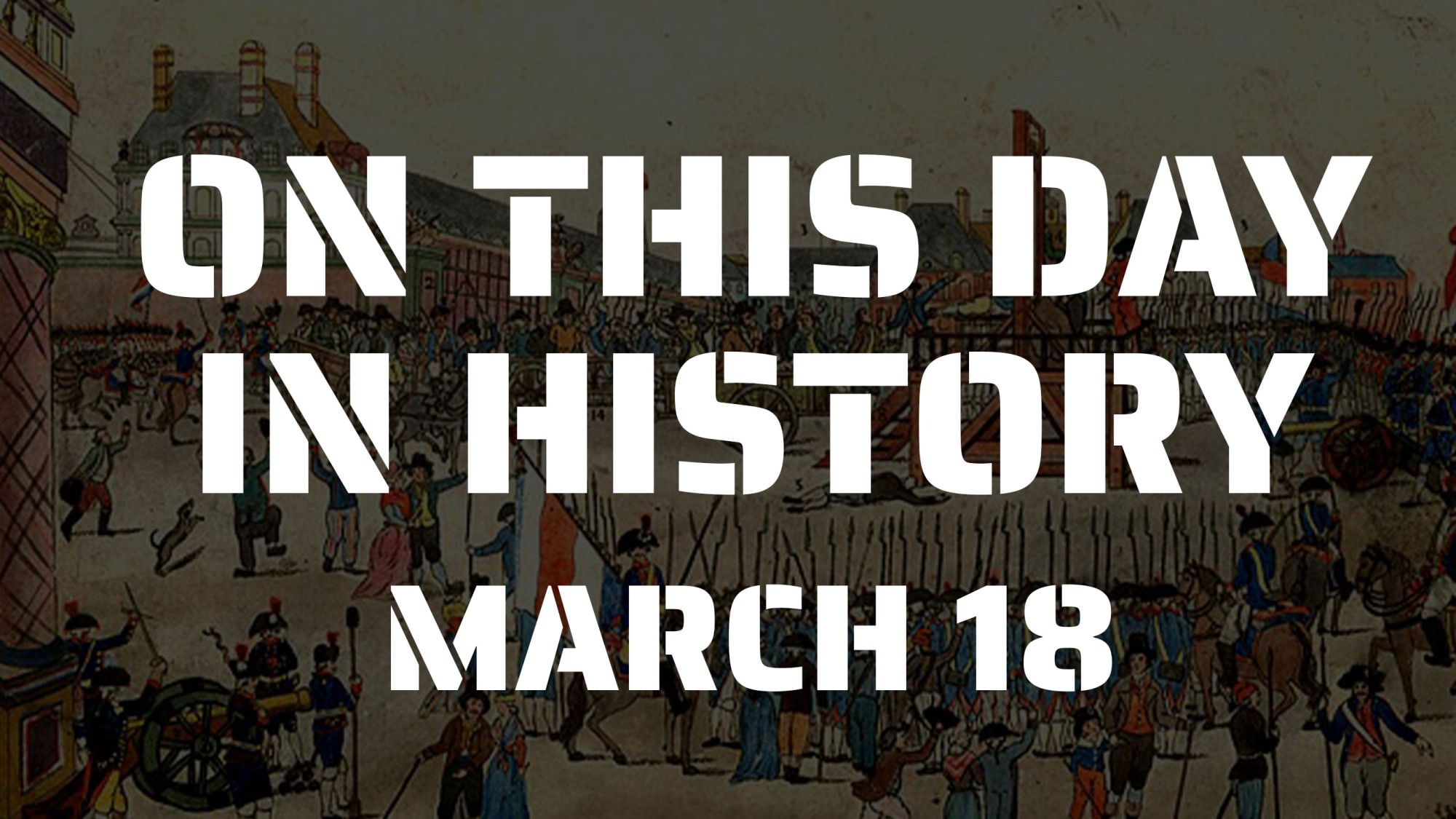
On This Day In History - March 18
"On This Day in History" is a captivating journey through time, revisiting the most significant events that have occurred on this very date throughout the years.From monumental political decisions and groundbreaking scientific discoveries to unforgettable moments in sports and cultural milestones, each article in this series will transport you back to a specific day, offering a glimpse into the past and revealing how these events have shaped our world.
Join us as we uncover the fascinating stories that have left an indelible mark on history. Wikimedia
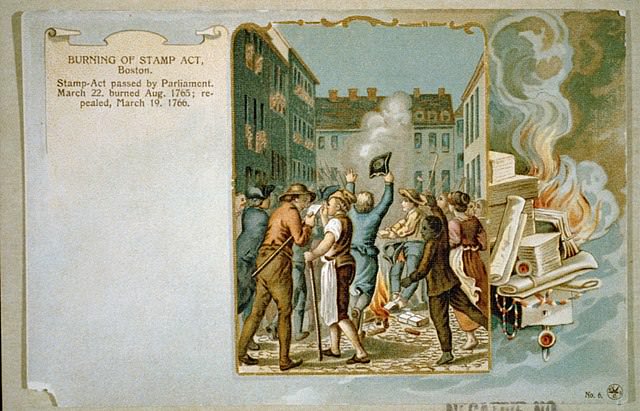
1776: Parliament Repeals Stamp Act Amid Colonial Unrest
On March 18, 1766, the British Parliament bowed to pressure from American colonists and repealed the controversial Stamp Act, which had been met with widespread protests and resistance.The act, passed the previous year, required colonists to pay a tax on various printed materials, such as newspapers, legal documents, and playing cards. Outraged by what they saw as an infringement on their rights as British subjects, colonists organized boycotts, demonstrations, and even violent protests, led in part by a group known as the Sons of Liberty.
Faced with growing unrest and economic disruption, Parliament ultimately decided to repeal the unpopular tax, marking a temporary victory for the colonists in their ongoing struggle for greater autonomy within the British Empire. Wikimedia/Library of Congress
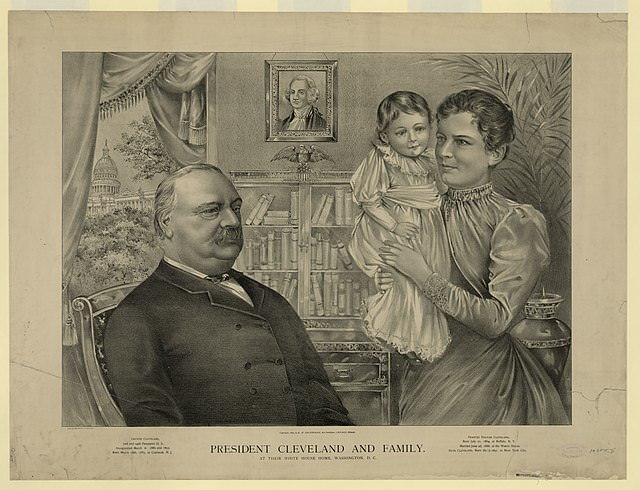
1837: Grover Cleveland Is Born
On March 18, 1837, Grover Cleveland, a prominent figure in American politics, was born in Caldwell, New Jersey. Cleveland made history as the only U.S. president to serve two non-consecutive terms in office.He first served as the 22nd president from 1885 to 1889 and later as the 24th president from 1893 to 1897.
Known for his honesty and integrity, Cleveland's presidencies were marked by his efforts to combat corruption, support tariff reform, and maintain the gold standard. His unique legacy as a two-term, non-consecutive president solidified his place in American history. Wikimedia/Popular Graphic Arts

1852: Wells And Fargo Start Shipping And Banking Company
On March 18, 1852, Henry Wells, William G. Fargo, and other investors founded Wells Fargo in New York City.The California Gold Rush of 1849 created a high demand for cross-country shipping and financial services, which the company sought to fulfill.
Starting in July 1852, Wells Fargo shipped freight to California mining camps, while also serving as a bank, buying gold dust, selling bank drafts, and providing loans to support the growing economy. Wikimedia/Marine 69-71
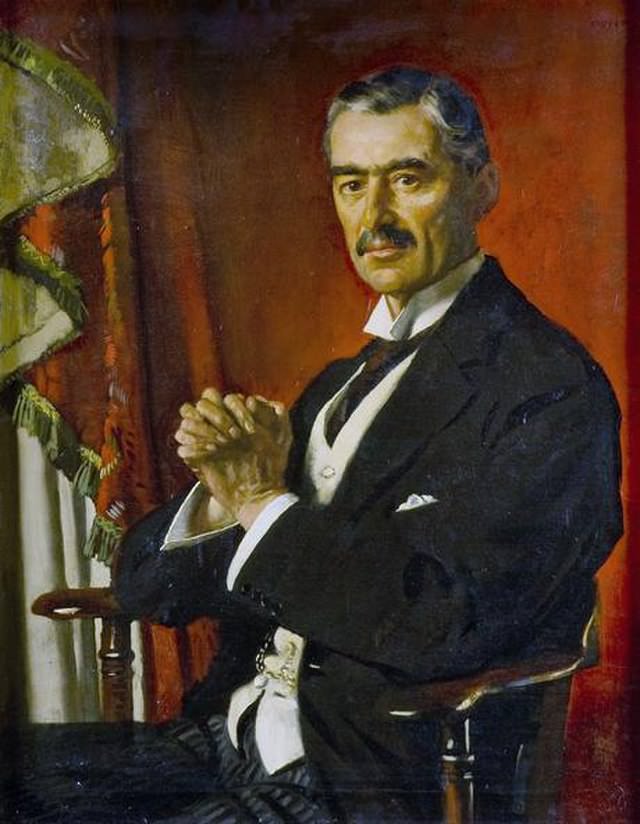
1869: Neville Chamberlain Is Born
On March 18, 1869, Neville Chamberlain, the British prime minister whose name became synonymous with the policy of appeasement toward Nazi Germany, was born in Birmingham, England.Chamberlain served as prime minister from May 28, 1937, to May 10, 1940, a period marked by rising tensions in Europe. He is best known for his efforts to maintain peace through diplomatic negotiations with Adolf Hitler, culminating in the Munich Agreement of 1938, which allowed Germany to annex portions of Czechoslovakia.
Despite his intentions, Chamberlain's policy of appeasement ultimately failed to prevent the outbreak of World War II, and he resigned in 1940 as the war intensified. Wikimedia/William Orpen
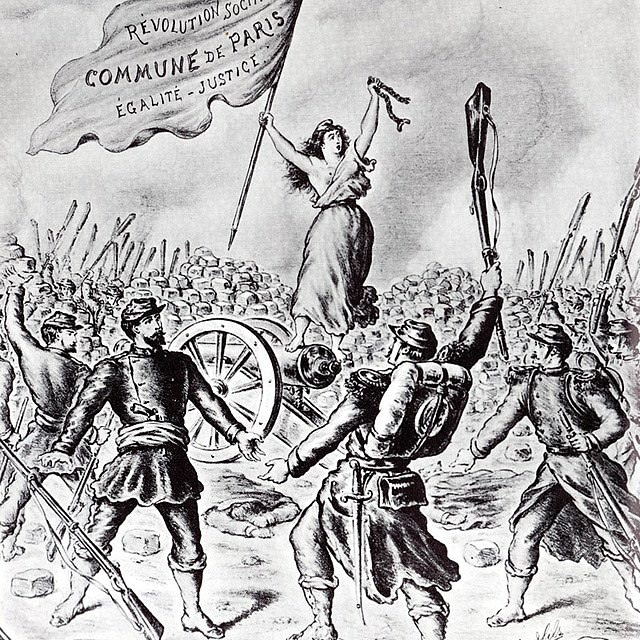
1871: The Commune of Paris Begins
On March 18, 1871, the people of Paris rose up against the French government, marking the beginning of the Commune of Paris.This insurrection was a response to the government's attempts to disarm the city's National Guard following France's defeat in the Franco-Prussian War. The Parisians, who were already dissatisfied with the government's handling of the war and the subsequent peace terms, established a radical socialist government known as the Paris Commune.
The Commune lasted for 72 days, until May 28, when French government troops brutally suppressed the uprising, leading to bloody reprisals and marking a significant moment in the history of revolutionary socialism. Wikimedia/Pouazity3
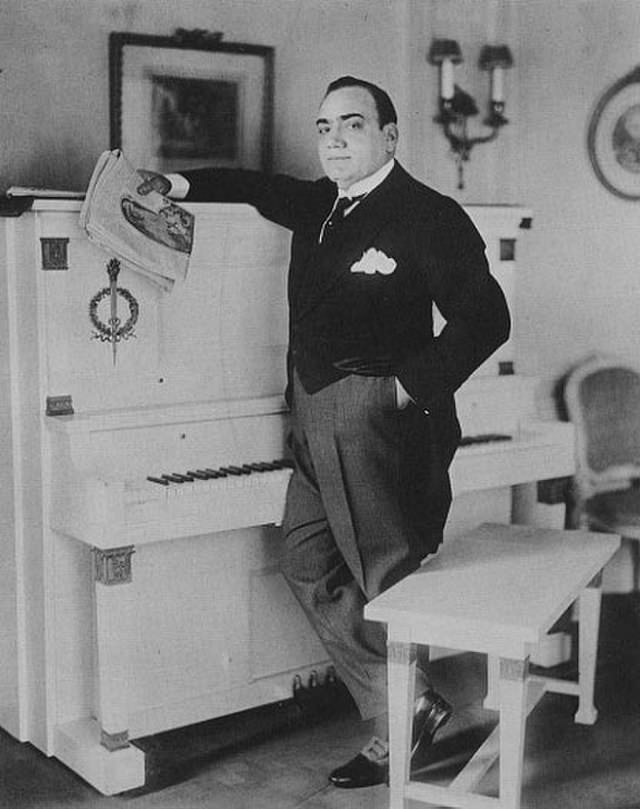
1902: Enrico Caruso Becomes One Of The First Musicians To Make A Recording
On March 18, 1902, Italian operatic tenor Enrico Caruso, widely regarded as one of the greatest singers of all time, made his first phonograph recording.Caruso was among the earliest musicians to recognize the potential of the gramophone, a device that allowed sound to be recorded and reproduced. His powerful and expressive voice, which had already captivated audiences in opera houses across Europe and the Americas, could now be heard by millions through his recordings.
This groundbreaking moment marked the beginning of Caruso's extensive recording career, which not only helped to popularize opera but also paved the way for the modern music industry. Wikimedia
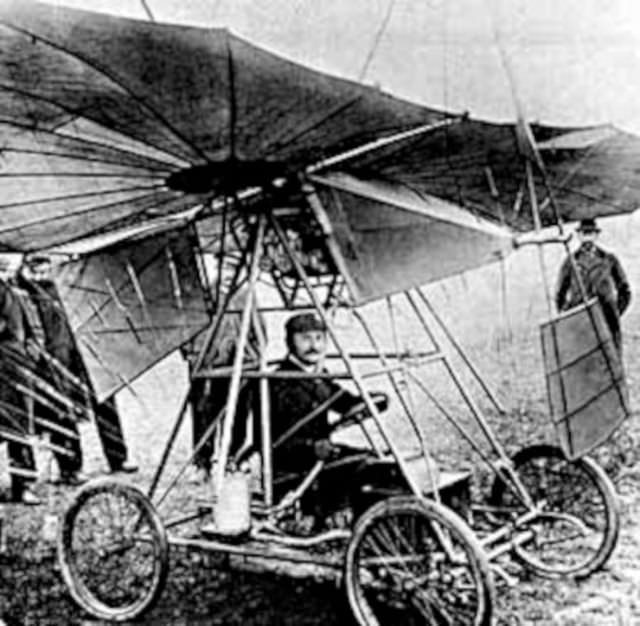
1906: Romanian Inventor Trajan Vuia's Monoplane Made Its First Flight
On March 18, 1906, Romanian inventor Trajan Vuia made aviation history when his monoplane, the first of its kind, successfully flew a distance of 12 meters (40 feet).Vuia's achievement marked a significant milestone in the development of aircraft design, as his monoplane differed from the more common biplane configuration used by other pioneers like the Wright brothers.
Although the flight was short, it demonstrated the potential of monoplane designs, which would eventually become the standard for modern aircraft. Vuia's innovative spirit and determination laid the groundwork for future advancements in aviation technology. Wikimedia
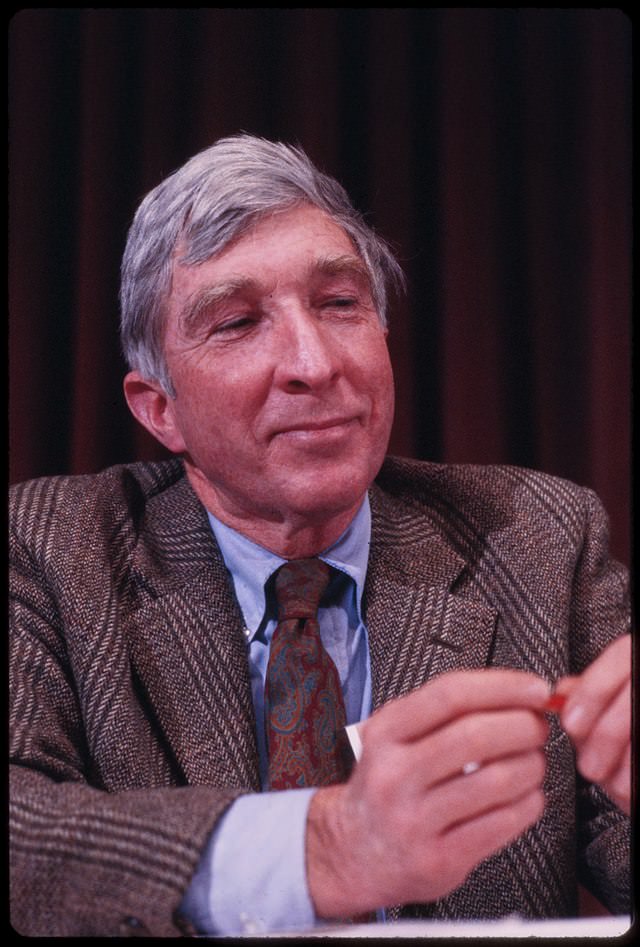
1932: John Updike Is Born
On March 18, 1932, John Updike, one of the most celebrated American writers of the 20th century, was born in Reading, Pennsylvania.Updike's literary career spanned over five decades, during which he published more than 20 novels, numerous short story collections, poetry, and essays. His works, such as the famous "Rabbit" series, are renowned for their keen observations and subtle depictions of the American middle-class experience, particularly focusing on Protestant, small-town life. Updike's writing style, characterized by its lyrical prose, wit, and psychological depth, earned him numerous accolades, including two Pulitzer Prizes for Fiction.
His birthday marks the beginning of a life dedicated to capturing the essence of the American experience through literature. Wikimedia/Bernard Gotfryd
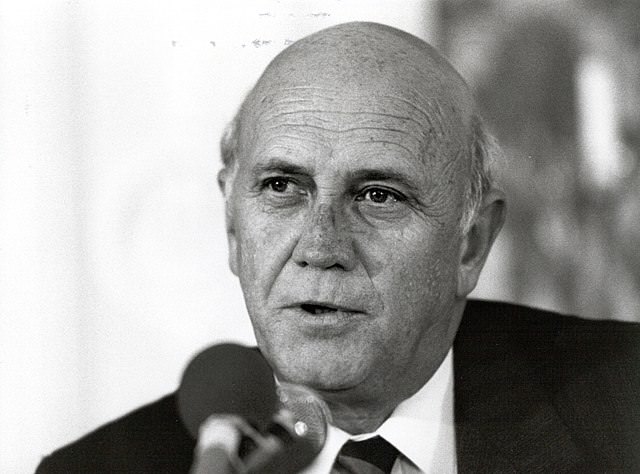
1936: Frederik Willem de Klerk Is Born
On March 18, 1936, Frederik Willem de Klerk, the last president of apartheid-era South Africa, was born in Johannesburg.As president from 1989 to 1994, de Klerk played a crucial role in dismantling the deeply entrenched system of racial segregation known as apartheid. In a historic speech to Parliament in 1990, he announced the unbanning of anti-apartheid organizations and the release of Nelson Mandela from prison.
De Klerk then worked with Mandela to negotiate a peaceful transition to majority rule, culminating in South Africa's first multiracial democratic elections in 1994. For their efforts, de Klerk and Mandela jointly received the Nobel Peace Prize in 1993, marking a significant milestone in the struggle for racial equality in South Africa. Wikimedia/Walter Rutishauser

1964: Bonnie Blair Is Born
On March 18, 1964, Bonnie Blair, one of the most decorated American female athletes in Olympic history, was born in Cornwall, New York.Blair's speed skating career was nothing short of remarkable, as she dominated the sport throughout the 1980s and 1990s. She competed in four Winter Olympic Games, winning five gold medals and one bronze medal between 1988 and 1994. Her Olympic success, which included winning gold in the 500-meter event in three consecutive Games, cemented her status as one of the greatest speed skaters of all time.
Blair's achievements not only brought glory to the United States but also inspired a generation of young athletes to pursue their dreams on the ice. Wikimedia/UweFan

1965: Soviet Cosmonaut Aleksei Leonov Becomes First Man To Walk In Space
On March 18, 1965, Soviet cosmonaut Aleksei Leonov made history by becoming the first person to venture outside a spacecraft and walk in space.During the Voskhod 2 mission, Leonov exited the spacecraft through an air lock and spent 12 minutes floating in the void, tethered to the ship by a 5.35-meter (17.5-foot) cable. This groundbreaking spacewalk, known as an Extra-Vehicular Activity (EVA), paved the way for future space exploration and demonstrated the feasibility of working outside a spacecraft.
Although Leonov faced challenges during the spacewalk, including his spacesuit inflating and becoming rigid, his bravery and determination marked a significant milestone in the history of human spaceflight. Wikimedia/Nijuuf

1974: OPEC Ends U.S. Oil Embargo After Five Months
On March 18, 1974, seven member countries of the Organization of Petroleum Exporting Countries (OPEC) announced the end of a five-month oil embargo against the United States.The embargo, which began in October 1973 in response to U.S. support for Israel during the Yom Kippur War, had a significant impact on the American economy, leading to fuel shortages, price hikes, and long lines at gas stations. The lifting of the embargo signaled a thawing of tensions between the U.S. and OPEC nations, as well as a recognition of the global economic interdependence in the oil market.
The crisis served as a wake-up call for the U.S. to reassess its energy policies and reduce its reliance on foreign oil. Wikimedia/C.Stadler/Bwag

1990: Thieves Pull Off Largest Art Heist in History
On March 18, 1990, the Isabella Stewart Gardner Museum in Boston fell victim to the most audacious art theft in history.Two men, disguised as police officers, gained entry to the museum and stole 13 priceless works of art, including paintings by renowned masters such as Rembrandt and Johannes Vermeer. The stolen pieces, valued at an estimated $500 million, included Rembrandt's only known seascape, "The Storm on the Sea of Galilee," and Vermeer's "The Concert."
Despite extensive investigations and a $10 million reward offered by the museum, the artwork has never been recovered, and the case remains unsolved.
The daring heist shocked the art world and exposed vulnerabilities in museum security, prompting institutions worldwide to reassess and strengthen their protective measures. Wikimedia/Federal Bureau of Investigation

2000: Chen Shui-bian Elected President Of Taiwan
On March 18, 2000, Taiwan witnessed a historic shift in power as Chen Shui-bian, a prominent figure in the pro-independence movement, was elected president.Chen's victory marked the end of the Nationalist Party's 55-year reign over the island nation, also known as the Republic of China. As a leader of the Democratic Progressive Party, Chen advocated for Taiwan's formal independence from mainland China, challenging the long-standing "One China" policy.
His election signaled a growing desire among the Taiwanese people for greater autonomy and international recognition.
Chen's presidency, which lasted until 2008, was marked by tensions with Beijing and efforts to assert Taiwan's distinct identity on the global stage. This pivotal moment in Taiwan's history showcased the strength of its democratic institutions and the determination of its people to shape their own political future. WikimediaJamali Jack

2012: Tongan King Tupou V Succeeded By His Brother, Crown Prince Lavaka
On March 18, 2012, the Pacific island nation of Tonga was struck by the loss of King Tupou V, who passed away at the age of 63.His sudden death marked the end of his six-year reign, during which he had initiated democratic reforms and guided the country through a period of modernization. In accordance with Tongan royal tradition, Crown Prince Lavaka, the younger brother of the late king, ascended to the throne, taking the name Tupou VI.
The new monarch pledged to continue his brother's legacy of progress and development while preserving Tonga's rich cultural heritage. The transition of power, though tinged with grief, demonstrated the resilience and unity of the Tongan people as they mourned their beloved king and embraced their new sovereign. Wikimedia/Governor-General of New Zealand
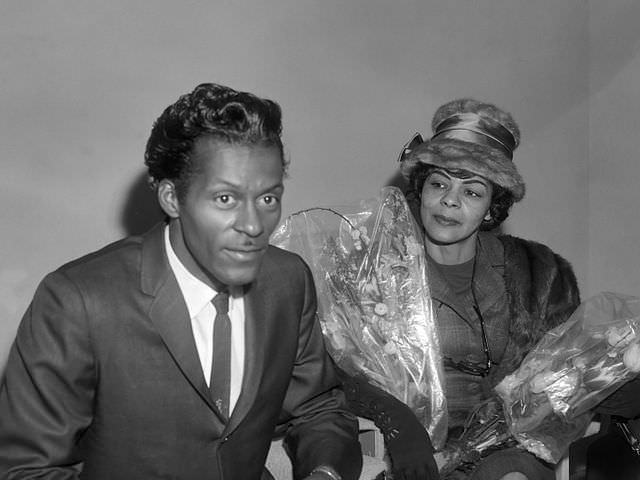
2017: Chuck Berry Dies
On March 18, 2017, the music world lost a true icon with the passing of Chuck Berry, the legendary American singer-songwriter and guitarist, at the age of 90.Berry was a pioneering figure in the development of rhythm-and-blues and rock-and-roll music, with his innovative guitar style, catchy melodies, and vivid storytelling lyrics. His influence on the evolution of popular music cannot be overstated, as he inspired generations of musicians, from the Beatles and the Rolling Stones to modern-day artists.
With classic hits like "Johnny B. Goode," "Roll Over Beethoven," and "Maybellene," Berry's music transcended racial and cultural boundaries, making him a beloved figure around the world. His death marked the end of an era, but his enduring legacy as a rock 'n' roll trailblazer will continue to inspire and entertain music lovers for generations to come. Wikimedia/Joop van Bilsen